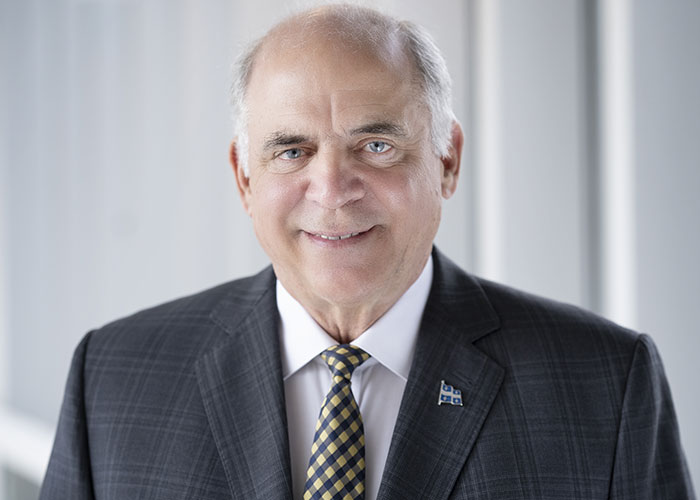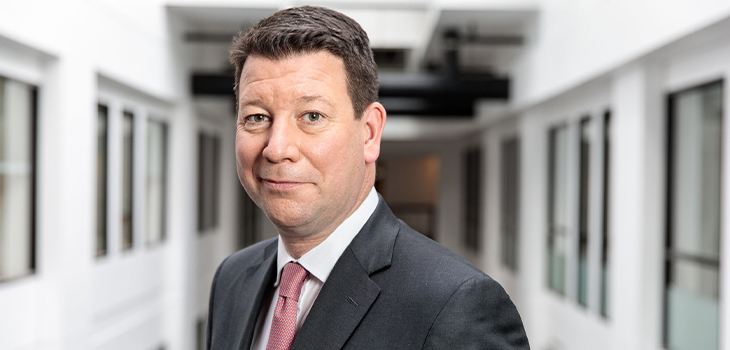Innovation / Canada
Foreign investment surge in Québec
With its diversified economy and abundant natural resources, Québec is a magnet for foreign investment.

Montréal is ranked as the world's third-largest aerospace hub.
In a riveting dialogue with key influencers shaping Québec’s economic landscape, The Business Report unveils the dynamic journey towards redefining global competitiveness. From government-driven innovation zones to attracting international talent and securing investments, Québec is scripting a compelling tale of economic appeal.
Québec’s economy has undergone significant diversification in recent years, expanding beyond its traditional domains of natural resources and manufacturing. The province has made notable strides in sectors such as aerospace, information technology, biotechnology, and clean energy. As a testament to this evolution, foreign direct investment (FDI) in Québec soared to a record $6 billion in 2022-23, marking a 30% surge from the previous year and nearly tripling the figures from 2018-19.
“To triple FDI from $2 to $6 billion is a quite an accomplishment, and the figures are expected to rise even further next year,” Hubert Bolduc, President of Investissement Québec International says confidently. Established in 1998, Investissement Québec has emerged as the premier partner for both foreign and local businesses eyeing opportunities in the province. “Our aim was to establish Investissement Québec as the primary driver of economic development in the region,” remarks Pierre Fitzgibbon, Minister of Economy, Innovation, and Energy. While attracting FDI remains crucial, he underscores the importance of leveraging the province’s core strengths. “We aspire to excel in specific sectors,” he asserts.
Innovation at the heart of economic vision
Innovation lies at the heart of Québec’s economic vision. The 2022-2027 Québec Research and Innovation Investment Strategy outlines an ambitious roadmap for sustainable and inclusive research and innovation, aimed at global competitiveness and socio-economic prosperity. The strategy prioritizes excellence in research, science, and technology; fostering an innovation-friendly ecosystem; supporting in-company investments and commercialization efforts; nurturing talent and fostering a culture of innovation; and focusing on promising sectors and catalytic projects.
Third largest aerospace center in the world
Québec boasts a robust aerospace industry, with major players engaged in aircraft manufacturing, maintenance, and innovation. Montréal, now ranked as the world’s third-largest aerospace hub, stands shoulder to shoulder with Toulouse and Seattle.
“Québec is a prime destination for foreign aerospace investment. Airbus, Bombardier, but also Bell, Pratt & Whitney, and CAE, five of the Original Equipment Manufacturers (OEMs) from the sector are present here,” stresses Bolduc. “Québec is undeniably an aerospace powerhouse,” he affirms. Québec’s aerospace clusters and industrial parks foster collaboration, innovation, and sectoral growth, complemented by specialized training and education initiatives. With 60,000 workers, and annual sales exceeding $15 billion, aerospace emerges as Québec’s largest export sector.
Emerging battery hub
Lithium-ion battery cells are one of the key areas that Québec is targeting as the province seeks to build an industrial base in electric propulsion systems. The province has significant lithium deposits, and other strategic minerals such as copper and graphite, in addition to comparatively cheap hydroelectric power, electric vehicle assembly, and proximity to the US and Ontario carmakers.
“Electric batteries have already attracted over $15 billion in investments, with projections exceeding $30 billion by 2030,” highlights Fitzgibbon. Québec beat Ontario and some US states to land the $7-billion facility from the Swedish company Northvolt. “For the first time, we will use lithium graphite and nickel to produce batteries and export them as a finished product,” he explains.
Pioneering clean energy initiatives
Known for its hydroelectric abundance, Québec has embarked on a journey towards clean and renewable energy. Planned investments in wind power, solar energy, and sustainable technologies underscore the province’s commitment to a greener future. “We envision energy transition as a catalyst for social and economic progress, leveraging our natural resources,” emphasizes Fitzgibbon. With over 97% of electricity sourced from hydroelectricity, Québec boasts one of the world’s cleanest energy portfolios.
Leading the charge in innovation
In addition to aerospace and clean energy, Québec positions itself as a frontrunner in innovative domains such as artificial intelligence (AI) and life sciences. The province’s tech-friendly ecosystem and strategic initiatives have attracted domestic and international players alike. “The first quantum computer in Canada was built here last year, reinforcing Québec’s position as a force in the rapidly advancing field of quantum computing,” says Fitzgibbon. The minister also underscores the rising position of the province when it comes to life sciences. Hubert Bolduc shares this sentiment, pointing out that “Québec succeeded in attracting Moderna’s $278-million vaccine plant.”
With its unwavering commitment to innovation and a rich resource base and supportive ecosystem, Québec is poised for continued growth, prosperity, and leadership in the years to come.
“Talent drives our industrial strategy”

Pierre Fitzgibbon, Minister of Economy, Innovation and Energy, shares his thoughts on the province’s advantages and focus areas.
What are your strategies to enhance Québec’s competitiveness?
With 8.6 million inhabitants, Québec may be the second-largest province in Canada, but in comparison to Canada and the US, our primary trade markets, we are still relatively small. Consequently, we’ve had to forge an economic development pathway distinct from our past approaches, focusing our efforts on leveraging our strengths – niche sectors where Québec has a competitive edge.
Which areas do you prioritize for improvement?
Our foremost objectives revolve around narrowing the productivity gap between Québec and the rest of Canada and the US, and elevating the productivity levels of our businesses. Achieving these goals hinges on integrating innovation across all economy sectors.
How can you enhance talent attraction and retention?
Talent is a driver of our industrial strategy. We boast 18 universities offering specialized education, directing talent towards sectors vital for Québec’s development. Additionally, Québec’s multiculturalism attracts numerous foreign students and workers who opt to settle here for the abundant opportunities and the high quality of life.
“We succeeded in tripling FDI”

Hubert Bolduc, President of Investissement Québec International, speaks about FDI, projects, and initiatives that foster the province’s economic growth.
What is the prevailing sentiment in the province?
Foreign investor interest toward Québec remains healthy. We successfully tripled FDI from $2 to $6 billion, and we anticipate further growth in the years ahead. Unemployment rates are at historic lows, and we have initiatives in place to facilitate immigration, attracting talent to our region.
Which projects are you undertaking to foster economic growth?
Québec’s economy, much like others, is largely comprised of SMEs. Our ‘Productivity Innovation’ initiative aims to assist businesses in enhancing their competitiveness and accelerating their growth through innovation. We are encouraging the adoption of technologies and processes such as automation, digitization, robotization, and artificial intelligence.
How do you assess the relationship with the US?
Our economies are deeply intertwined. Québec maintains a network of delegations globally, including six in the US. We collaborate closely with governors, state representatives, and senators to ensure a positive relationship. Additionally, Québec was among the first jurisdictions to advocate for free trade, having signed agreements with both Europe and Asia.
